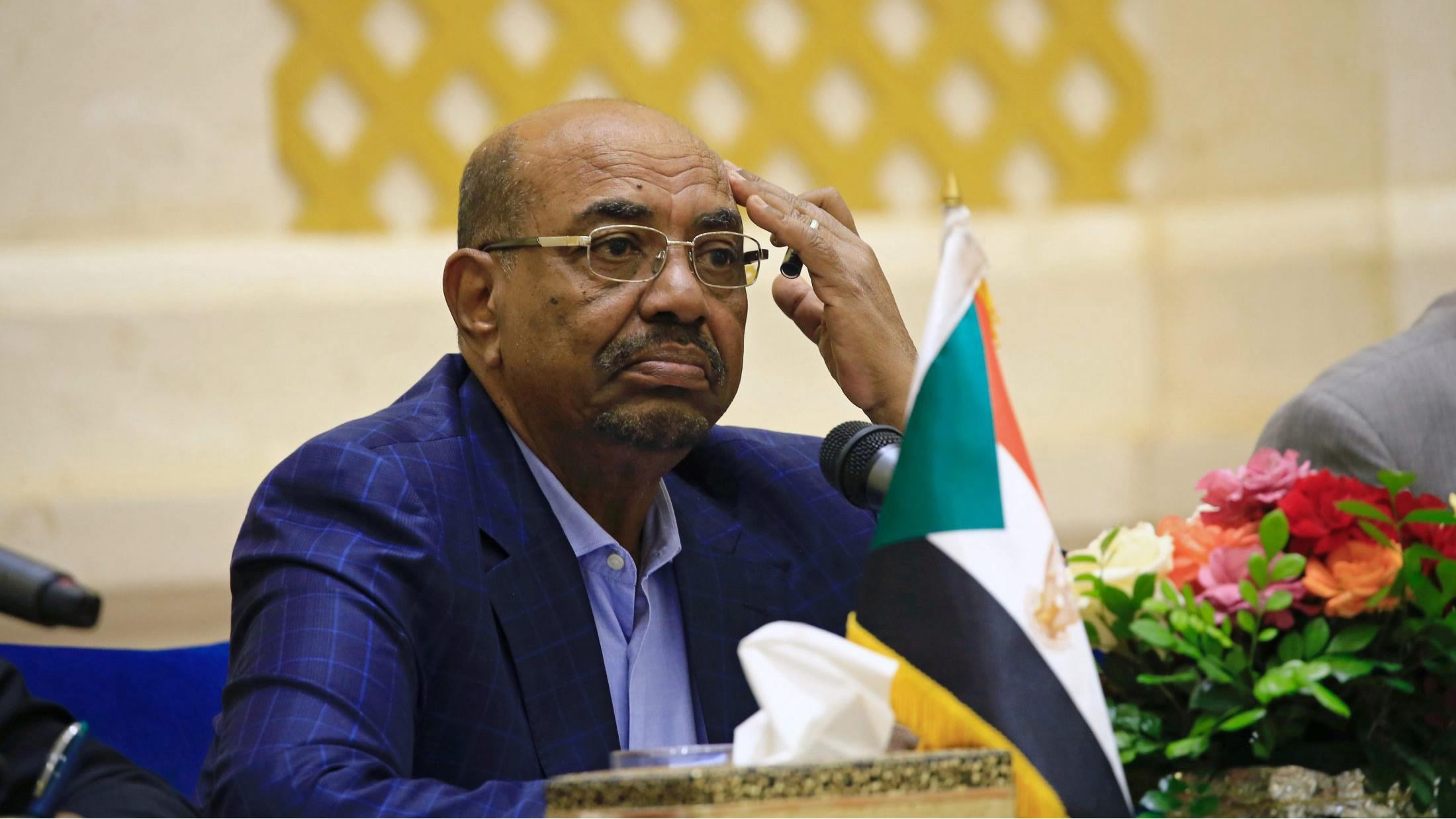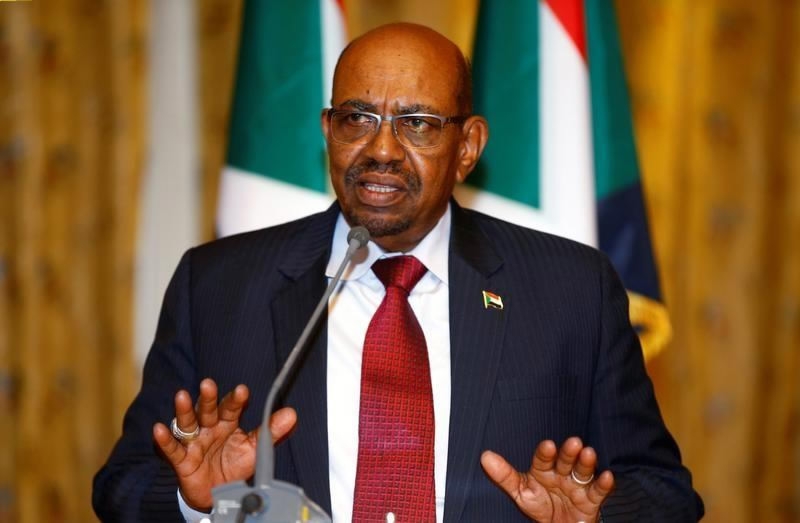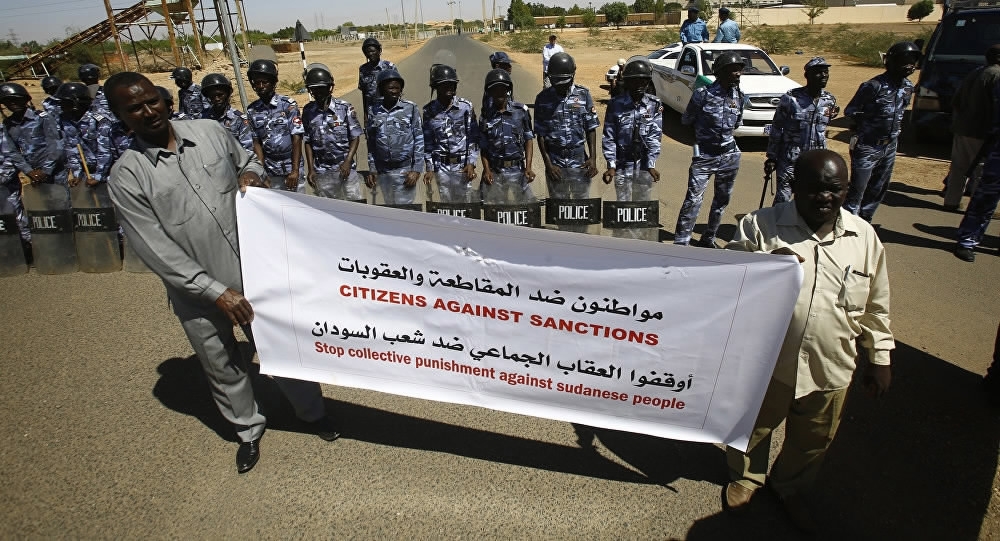
Politics
09:55, 07-Oct-2017
US lifts Sudan sanctions with commitment against arms deals with DPRK
CGTN

The US lifted long-standing sanctions against Sudan on Friday, saying it had made progress fighting terrorism and easing humanitarian distress, and also secured commitment not to pursue arms deals with the Democratic People's Republic of Korea (DPRK).
In a move that completes a process begun by former President Barack Obama, President Donald Trump removed a US trade embargo and other penalties that had effectively cut Sudan off from much of the global financial system.
The US decision marked a major turnaround for the government of President Omar Hassan al-Bashir, who once played host to Osama bin Laden and is wanted by the International Criminal Court on charges of orchestrating genocide in Darfur.

Sudan’s President Omar Al Bashir addresses a news conference during his official visit to Ethiopia's capital Addis Ababa, April 4, 2017. /Reuters Photo
Sudan’s President Omar Al Bashir addresses a news conference during his official visit to Ethiopia's capital Addis Ababa, April 4, 2017. /Reuters Photo
However, Sudan will stay on the US list of state sponsors of terrorism, alongside Iran and Syria, for its ban on weapons sales and its restrictions on US aid, US officials said.
Sudanese officials also remain subject to UN sanctions for human rights abuses during the Darfur conflict, the officials said.
The lifting of sanctions reflects a US assessment that Sudan has made progress in meeting Washington's demands, including cooperation on counter-terrorism, working to resolve internal conflicts and allowing more humanitarian aid into Darfur and other rebellious border areas, the officials said.
State Department spokeswoman Heather Nauert said the sanctions relief was in recognition of Sudan's "sustained positive actions" but that more improvement was needed.

Sudanese police stand guard as two men hold a banner outside the US embassy in the capital Khartoum, on Nov. 3, 2015, to protest against sanctions imposed on their country by the US. /AFP Photo
Sudanese police stand guard as two men hold a banner outside the US embassy in the capital Khartoum, on Nov. 3, 2015, to protest against sanctions imposed on their country by the US. /AFP Photo
The Trump administration also secured a commitment from Sudan that it would "not pursue arms deals" with the DPRK, and Washington will apply "zero tolerance" in ensuring Khartoum's compliance, one of the officials said.
But they said Khartoum's assurances on the DPRK were not a condition for lifting sanctions, some of which had been in place for 20 years and have hobbled the Sudanese economy.
Sudan has long been suspected of military ties with the DPRK, which is locked in a tense standoff with Washington over its missiles and nuclear weapons programs. But the official said Khartoum was not believed to have diplomatic relations with Pyongyang and that was not expected to change.
Sudan also has recently distanced itself diplomatically from Iran, another US arch-foe.
Potential boost for business
US officials have said that the sanctions relief, which will unfreeze Sudanese government assets, could benefit a range of businesses in Sudan, including its key energy sector.
The economy has been reeling since South Sudan, which holds three-quarters of former Sudan’s oil wells, seceded in 2011.
Central bank governor Hazem Abdel Kader said removing sanctions would allow Sudan's banking system to "reintegrate into the global economy," according to state news agency SUNA.
Dissenting voices
Rights groups see the sanctions removal as premature.
“It sends the wrong message to lift these sanctions permanently when Sudan has made so little progress on human rights," said Andrea Prasow, deputy director of the Washington office of Human Rights Watch.
US sanctions against Sudan
The US first imposed sanctions on Sudan in 1997, including a trade embargo and blocking government assets, for human rights violations and terrorism concerns. Washington layered on more sanctions in 2006 for what it said was complicity in the violence in Sudan's Darfur region.
Shortly before leaving office, Obama temporarily eased penalties against the east African nation. In July, the Trump administration postponed for three months a decision on whether to remove the sanctions completely, setting up an Oct. 12 deadline.
Source(s): Reuters

SITEMAP
Copyright © 2018 CGTN. Beijing ICP prepared NO.16065310-3
Copyright © 2018 CGTN. Beijing ICP prepared NO.16065310-3